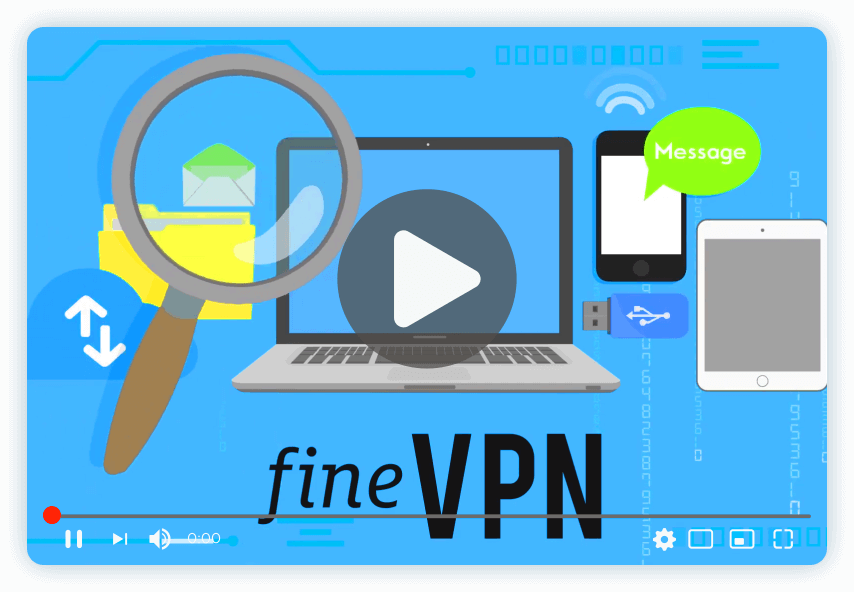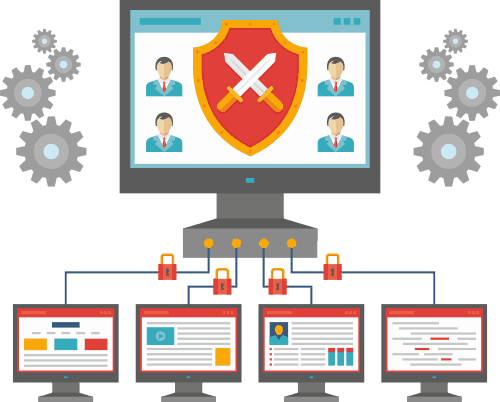A VPN is essential for any Internet user who cares about security.
Primarily, users utilize VPNs to hide their IP addresses and encrypt their traffic, but let’s explore the numerous benefits a VPN provides. For instance, it’s common for ISPs to block Torrent traffic. This is easily noticed when “surfing” the web at one speed, but as soon as you start downloading a file, the speed dramatically decreases. A VPN can help in this situation by encrypting your traffic, making it impossible for your ISP to detect that you’re downloading torrents, and preventing any speed throttling.
Imagine a set of devices (laptop, smartphone, tablet) connected to a VPN, depicted in simple forms, with contrasting colors, in a clean and modern style.
Another application is the use of free Wi-Fi networks. You visit a café with free Wi-Fi, but you don’t know who else might be in the same café, possibly a malicious actor scanning the network traffic (and this isn’t too difficult to do). If you log into your VK or Odnoklassniki account through such a Wi-Fi, you might find spam messages sent to your friends and family from your account the next day, as you’ve inadvertently handed over your data to the malicious actor.
Visualize a secured lock, a key, data packets, in metallic shades with smooth gradients, offering a modern perspective.
People often use VPNs to appear as if they are accessing the internet from another country. This helps to bypass geo-restrictions. For example, you can’t register for Spotify from Russia, or even with a paid subscription to Amedia, you won’t be able to watch movies while vacationing in Turkey or Egypt. And there are many more applications, enough to fill not just an article but an entire book. In the 21st century, a VPN is not some secret technology used by hackers for malicious purposes; it’s a necessity for anyone who goes online and cares about their security.















